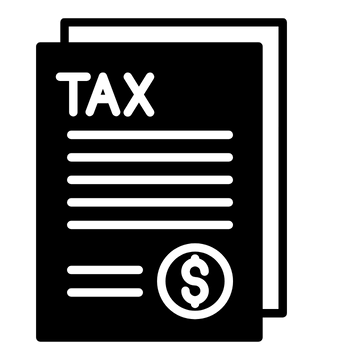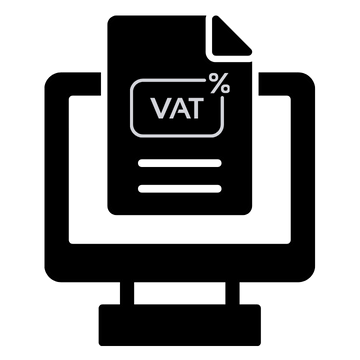ENSURE THAT YOUR BUSINESS COMPLIES WITH THE TAX REGULATIONS IN THE UAE.
Our team will help you register your business for VAT and obtain an individual or corporate tax residency certificate from the Federal Tax Authority (FTA).

If you need help with the UAE’s Value Added Tax (VAT) rules, our skilled team is available for support. We conduct a thorough examination of your invoices, quotations, contracts, and purchase orders to determine if your business falls into either of the following categories: mandatory and voluntary registration.
Mandatory Registration: If your business sells more than AED 37500 worth of goods or services in one year, you have to sign up for a value-added tax. You also must register if you think sales will reach this level in the next thirty days. (OR) If these rules are followed then, today has come after twelve months when total sold items and offered solutions surpassed
Voluntary Registration: If your business sales of taxable items and services will reach over AED 187,500 in a year or if you expect total monthly income from all types to go beyond this limit within thirty days, then having voluntary registration can help with clear control information about details.
MUST KNOW
With revenues below AED 187,500.0 your firm is presently not qualified to be registered for VAT. But if the required threshold limit is not met, you have 20 working days to apply.
In order to speed up the registration process, you need a corporate bank account.
Our Vat & Tax Consultancy

Tax Residency

FTA Portal and Documentation

VAT Registration (TRN)

Tax Consultations
A Guide to VAT Compliance in Dubai and the UAE
Middle Easterners usually don’t have to pay personal income taxes. Instead, oil companies and foreign banks are taxed instead. This is especially beneficial to those thinking of opening a business in Dubai. But you should not forget that starting January 1, 2018 Dubai implemented Value-Added Tax (VAT) on most goods and services.
But for a business owner in Dubai, you must charge VAT on almost all goods and services–from restaurant food to hardware tools. If the idea of VAT is a new one or sounds strange to you, then this is just your page. Read on for a complete guide to VAT in Dubai.
Why Should You Consider Starting a Business in Dubai?
There are many attractive reasons to start a business in Dubai, above all the supporting measure of government-funded initiatives, competitive economy and its spectacular economic growth over the past few years. But to many, the main attraction still lies in tax benefits.
In the Middle East personal and corporate incomes are not taxed. The only mandatory payment is the Value-Added Tax (VAT) at a reasonable rate of 5 %. Given these advantages, choosing a setup in the free zones makes them all even bigger. The rates for corporate profits tax and personal income are both zero here; imported goods also enter duty-free, while profits can be repatriated to 100 %, fully Home Story
What Does Value-Added Tax Mean?
Value-added tax (VAT) is a consumption tax. Unlike income taxes, VAT is paid on the buying of goods and services. It is used every time the business adds value to its product, at every step in the manufacturing and distribution process.
VAT on any purchases usually falls under the customer’s responsibility. The business is responsible for collecting the VAT and turning it over to government. Otherwise penalties or even criminal charges may be involved.
Over 150 countries, including all members of the European Union and Canada have adopted VAT consumption tax.
History of VAT
In 2018, a VAT was introduced in Dubai. Everybody has to pay the tax whether they are buying online or offline. As of January 1, 2018 all businesses in the UAE are required to register for VAT and then collect the amounts from consumers. This was the first ever implementation of VAT in the Middle East.
The Federal Tax Authority (FTA) was established to manage and collect federal taxes. Mainly with a view to obtaining another source of revenue so that the government could subsidize such services as hospitals, parks and waste control. The big picture was to reduce dependence on earnings from oil.
7 Things to Know About VAT in Dubai
Before starting a business in Dubai, there are some important points to which attention must be drawn. Starting up correct is the best way of avoiding future problems for your industry
Understanding VAT Obligations
Complying with VAT obligations is of the utmost importance. Businesses must register according to the regulations and promptly pay VAT. If anyone does not understand these responsibilities, they may be faced with heavy fines (which can total up to 300 % of any unpaid VAT) and interest.
In Dubai, VAT Is Charged at 5 %
Knowing that VAT in Dubai is charged at a fixed rate of 5 % is imperative. This holds true for all taxable goods and services, including imports. Identifying whether you have a taxable supply is important because not all services are exempt. A taxable collection means goods or services subject to consideration by a person doing business in Dubai. Typical comprises retail, food service, hotels and the entertainment activities related with most businesses.
Certain Services Have 0% VAT
Understanding whether your supplies fall under 0 % or are exempt, is the key to deciding if a VAT of 5 % applies. Some services receive a 0 % VAT rate, so that businesses have to put zero value on their invoices. They are: Goods and services exported outside the Gulf Cooperation Council (GCC) member states; international transportation; supply of crude oil or natural gas, collection of investment-grade precious metals (silver and gold with 99 % purity); collectively known as reviewable goods. Specifically areas include health care, education and newly constructed residential properties within three years after
Meanwhile, those regarded as outside the state pay 0 % VAT so long as they have been there for less than a month and are not in connection with any supply. It is important to note that zero-rated VAT differs from exempt VAT. Even businesses that issue zero-rated taxable supplies must still be registered for VAT, although the rate is 0%.
Some services are exempt from VAT
Unlike zero-rated services, exempt services are entirely VAT free. Financial services, the supply of residential property, vacant land and local public transportation comprise only four items that fall under the exemption category.
Financial Services: Typically, financial services involving money are exempt. It includes currency exchange, giving out loans or credit, and deposit-taking as well as savings accounts. Insurance contracts are also excluded except where a fee, discount or commission is charged for such service.
Supply of Residential Property: VAT is not levied on the supply of residential buildings, whether for sale or rent. But movable places not fastened to the ground, such as RVs and motorhomes, are viewed as neither residential buildings nor excluded. Besides, hotels and motels are excluded from the VAT exemption.
Local Public Transportation: All local land, water or air transport between one state and another are exempt services. Not even those services involving local vehicles which use helicopters or airplanes escape VAT.
With an Annual Income of AED 375,000 and Over VAT Applies to Businesses
If none of your taxable supplies were zero-rated or exempt, VAT must be charged at 5 %. But not every business is required to register for VAT, and only once the threshold has been reached does it become compulsory.
Businesses which have to register for VAT are those engaged in taxable supplies and imports amounting annually to or above AED 375,000.
Businesses whose taxable supplies or imports exceed AED 187,500 may register for VAT.
You Can Get Some of Your VAT Paid Back
For the business, you collect VAT from your customers and pay over a certain amount of Input Tax. This input tax can be deducted by the business, which sets off against VAT collected from customers.
You calculate your total VAT liability as the amount of VAT collected from customers minus Input Tax, which each business pays when they buy certain goods.
Without input tax recovery double-taxation occurs on the same product. Take the case of a business that buys computer tablets and sells them to customers. VAT is paid on the purchase, but collected from purchaser-customers. By getting back the Input Tax, it means that the end-user can only charge VAT once.
You need to know that Input Tax cannot be refunded on services provided in the exempt category.
You Need to Register for VAT
Registering for VAT is an obligatory step, and the procedure involves creating an e-service account and applying through the FTA portal. Here are the key steps:
Create an e-service account: Create an account with a valid email address before registering for VAT.
Initiate the registration process: Go to the FTA portal, fill in the relevant information and attach supporting documents.
FTA approval and Tax Registration Number (TRN): After the FTA approves an application, it assigns a Tax Registration Number (TRN) to be used in signing on to the VAT portal.
Keep track of taxable supplies: Reaching the minimum threshold requires VAT registration, meaning you need to have updated information on taxable supplies.
Filing VAT returns: VAT returns are to be submitted online within 28 days after the end of a tax period with frequency determined by annual turnover. With turnover below AED 150 million, businesses file monthly; those above that amount, quarterly.
You Can Pay Online
VAT payments and returns are filed by computer, with deadline dates four times a year. Late filers will be penalized; zero-rated supplies also require filing. The payment process gives some options, with firms able to pay VAT online in state or overseas; debit and money orders can be accepted as forms of compensation. Payment deadlines must be met in order to silence penalties, which can drastically increase for late filing and payment.
Ready to Start Your Business in Dubai?
With VAT requirements in Dubai now official, which came into effect at the start of 2018 you should not forget that personal or corporate income tax is non-existent under the laws and regulations governing DIFC. As you enjoy the tax benefits, don’t forget your collections and reporting responsibilities for VAT. For setting up a new business it is important not to overlook these aspects of establishing an enterprise in China.
After understanding VAT Consultancy in Dubai, the next step is to check all costs of starting a business. To help you in this effort and make sure that you are adequately prepared for every expense, we provide a useful instrument: our business cost calculator. Use it now to find out the true prices you will have when starting your business.


